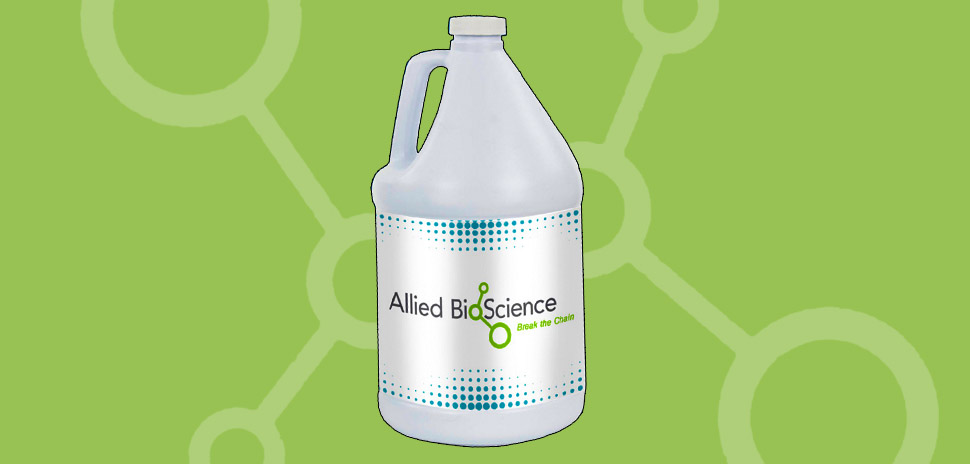Health care-associated infections (HAIs) are a risk to patients, as well as an economic burden to health care systems. A new report published in Clinical Infectious Diseases suggests Dallas-based Allied BioScience’s antimicrobial coating has the potential to improve patient outcomes and reduce environmental contamination.
It’s the first study to evaluate the impact of antimicrobial coating on health care-associated infection rates. Researchers found a connection between sustained environmental bioburden decreases and healthcare-associated infection reductions, according to the company.
Allied BioScience specializes in antimicrobial coatings, such as this one, which are designed to reduce infection and illness in public spaces.
Last month, Allied BioScience announced that it is among newly formed venture capital firm Lydia Partners’ initial round of multimillion-dollar investments. The amount, which was undisclosed, is expected to be used to scale Allied BioScience’s operations and meet “a surging demand.”
Patented surface coating
The product used for the study was the “Always-On” surface coating, a first-generation patented product developed by Allied BioScience. The antimicrobial coating “can minimize bacterial survival on surfaces for up to 15 weeks by bonding to the surface and creating a protective antimicrobial barrier,” according to a study.
The transparent surface coating was applied by an electrostatic sprayer to patient rooms and common areas for the study. The coating is currently being used in several hospitals and professional sports facilities, including some in North Texas, according to a company representative.
“Enhanced environmental controls have never been more critical to support Public Health. No other antimicrobial surface coating technology has been similarly tested and revealed published comparable efficacy results,” Dr. Charles Gerba, a co-author on the Clinical Infectious Diseases manuscript and a professor of environmental microbiology at the University of Arizona, said in a statement.
The “Always-On” product is part of Allied BioScience’s mission to develop, produce, and distribute transparent and durable antimicrobial coatings. Through the study, the coating demonstrated the first correlation between sustained environmental bioburden decreases and healthcare-associated infection (HAI) reductions.
Reducing the amount of HAIs is especially important as around one in 25 patients admitted to a hospital will get an HAI, according to a study, and the estimated direct medical cost of HAIs is more than $30 billion annually in the U.S. alone. Through its products, Allied BioScience hopes to “economically, effectively and continuously diminish the microbial burden and reduce the incidence of bacterial, viral and fungal disease,” according to a statement.
“This groundbreaking study provides deep evidence proving our coatings’ unique efficacy. We are eager to see if such results can be mirrored for viruses,” Michael Ruley, Allied BioScience’s CEO, said in a statement.
Although the “Always-On” coating has not been tested against COVID-19, a similarly-formulated coating product is currently being studied by Gerba in his independent lab for its efficacy against coronavirus, according to a company representative.
![]()
Get on the list.
Dallas Innovates, every day.
Sign up to keep your eye on what’s new and next in Dallas-Fort Worth, every day.






























